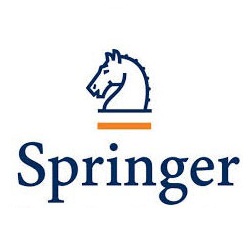Abstract
Motor learning is a process that extends beyond training sessions. Specifically, physical practice triggers a series of physiological changes in the CNS that are regrouped under the term ‘‘consolidation’’ (Stickgold and Walker 2007). These changes can result in between-session improvement or performance stabilization (Walker 2005). In a series of three experiments, we tested whether consolidation also occurs following observation. In Experiment 1, participants observed an expert model perform a sequence of arm movements. Although we found evidence of observation learning, no significant difference was revealed between participants asked to reproduce the observed sequence either 5 min or 24 h later (no betweensession improvement). In Experiment 2, two groups of participants observed an expert model perform two distinct movement sequences (A and B) either 10 min or 8 h apart; participants then physically performed both sequences after a 24-h break. Participants in the 8-h group performed Sequence B less accurately compared to participants in the 5-min group, suggesting that the memory representation of the first sequence had been stabilized and that it interfered with the learning of the second sequence. Finally, in Experiment 3, the initial observation phase was replaced by a physical practice phase. In contrast with the results of Experiment 2, participants in the 8-h group performed Sequence B significantly more accurately compared to participants in the 5-min group. Together, our results suggest that the memory representation of a skill learned through observation undergoes consolidation. However, consolidation of an observed motor skill leads to distinct behavioural outcomes in comparison with physical practice.
Physical practice has long been regarded as the single most important determinant of motor skill acquisition. This belief was often expressed by the old adage ‘‘practice makes perfect,’’ as advocated by early models of motor skill learning (Crossman 1959; Fitts 1964; Adams 1971; Schmidt 1975; Shea and Morgan 1979). Although the importance of physical practice for motor skill learning is undeniable, recent evidence demonstrates that important processes take place between practice sessions. Specifically, physical practice triggers a series of physiological changes in the brain, from protein synthesis to the formation of new synapses (McGaugh 2000), leading to the long-term retention of the new skill. Regrouped under the term ‘‘consolidation’’ (Stickgold and Walker 2007), these changes require time to occur and constitute the foundation of motor skill learning.
General discussion
The objective of the present report was to determine whether we could find behavioural evidence that a motor skill learned through observation can be consolidated. To do so, we conducted a series of three experiments in which we sought evidence of off-line learning and stabilization, the two most common behavioural outcomes of the consolidation processes (Walker 2005; Krakauer and Shadmehr 2006). In Experiment 1, no off-line learning was observed. This was the case even when the observation and retention sessions were separated by sufficient time (including a night of sleep) and when the participants’ performance could improve still further. Although it could be argued that subtle kinematic differences could have resulted from consolidation (for example, smoother and less variable bell-shape velocity profiles to perform each segment of the task), they clearly had no significant impact on what the participants were asked to do, which makes them secondary to the findings of the present study. In Experiment 1, the observers outperformed the control group in the 24-h retention test, indicating that observation resulted in a lasting representation of the task in the CNS. This proposition is supported by the results of Experiment 2, in which an 8-h break between the observation of two distinct movement sequences resulted in anterograde interference, suggesting that the memory representation of the first sequence (Sequence A) had been stabilized and kept in memory during the inter-session interval. Together, the results of Experiments 1 and 2 indicate that specific consolidation processes do occur following an observation session. To our knowledge, this is the first time that it is unequivocally shown that physical practice is not a prerequisite for motor skill consolidation.







